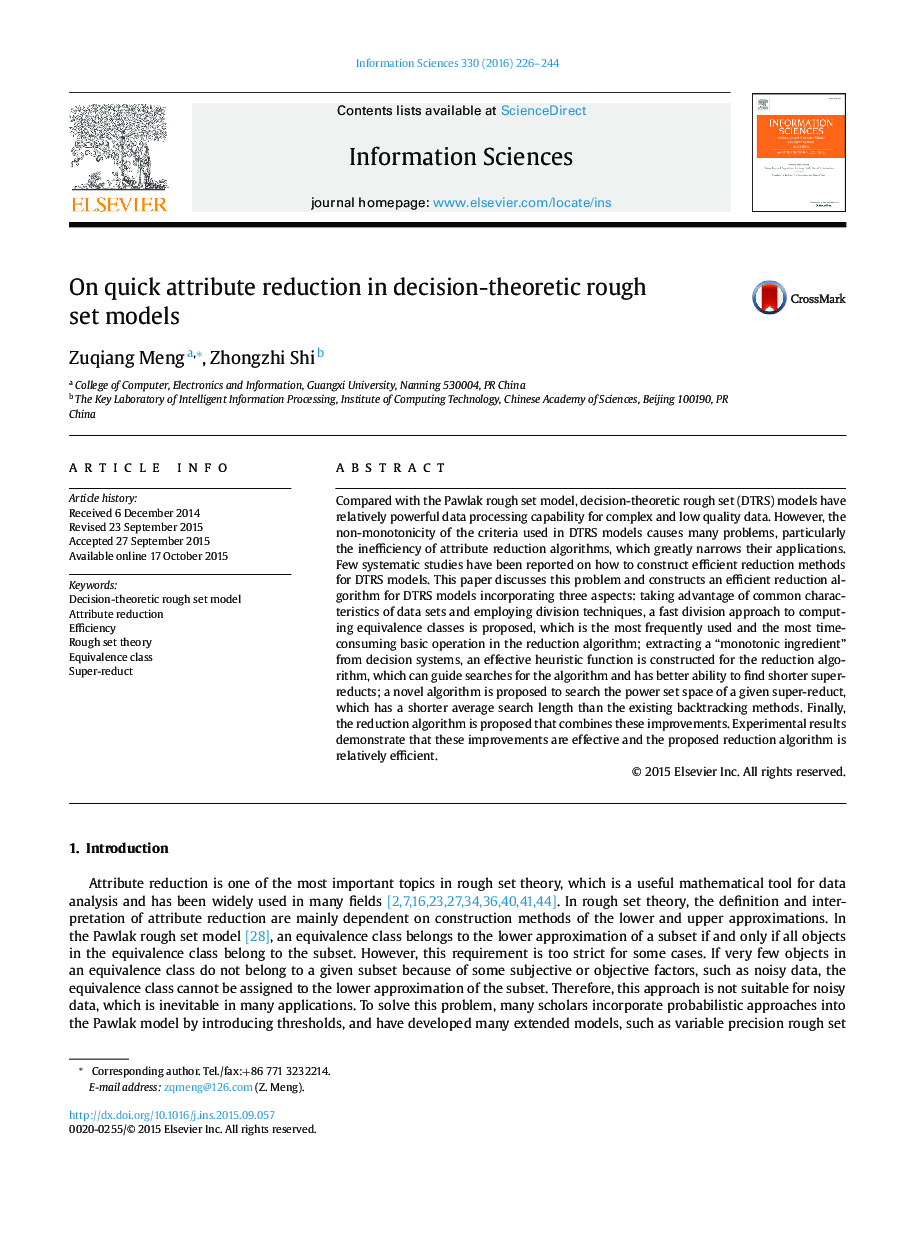| کد مقاله | کد نشریه | سال انتشار | مقاله انگلیسی | نسخه تمام متن |
|---|---|---|---|---|
| 392850 | 665182 | 2016 | 19 صفحه PDF | دانلود رایگان |
Compared with the Pawlak rough set model, decision-theoretic rough set (DTRS) models have relatively powerful data processing capability for complex and low quality data. However, the non-monotonicity of the criteria used in DTRS models causes many problems, particularly the inefficiency of attribute reduction algorithms, which greatly narrows their applications. Few systematic studies have been reported on how to construct efficient reduction methods for DTRS models. This paper discusses this problem and constructs an efficient reduction algorithm for DTRS models incorporating three aspects: taking advantage of common characteristics of data sets and employing division techniques, a fast division approach to computing equivalence classes is proposed, which is the most frequently used and the most time-consuming basic operation in the reduction algorithm; extracting a “monotonic ingredient” from decision systems, an effective heuristic function is constructed for the reduction algorithm, which can guide searches for the algorithm and has better ability to find shorter super-reducts; a novel algorithm is proposed to search the power set space of a given super-reduct, which has a shorter average search length than the existing backtracking methods. Finally, the reduction algorithm is proposed that combines these improvements. Experimental results demonstrate that these improvements are effective and the proposed reduction algorithm is relatively efficient.
Journal: Information Sciences - Volume 330, 10 February 2016, Pages 226–244
